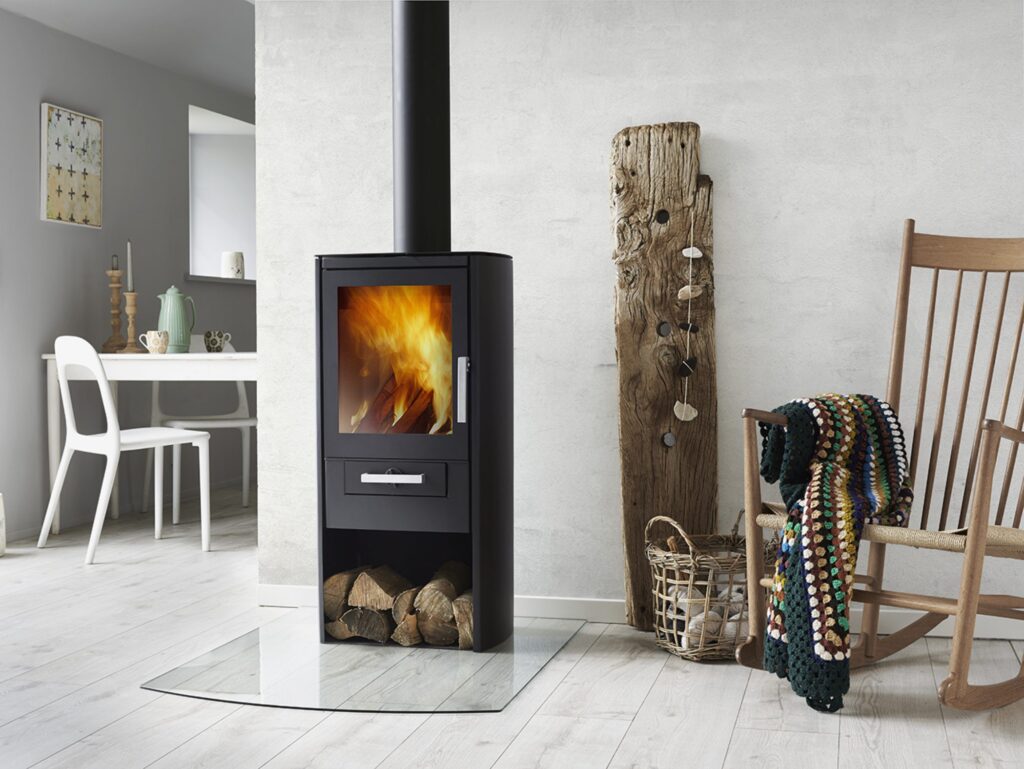
Windows, loft insulation, cars – EU energy ratings and regulations have applied to many product categories for several years. With domestic appliances now under scrutiny, builders must be aware of the energy ratings of the products they specify and install. Beko’s national sales manager, Bob Abbott, explains what builders need to know and why.
“Builders now have to meet some very stringent energy levels which ultimately contribute to positive planning consent being granted by Local Authorities,” says Bob Abbott, national sales manager at domestic appliance manufacturer, Beko. “These energy code levels, which range from 3 to 6, award points for various energy savings throughout the fabric of a house and the additional items within it, such as household appliances.”
Beko, which has sold more than 15,000,000 appliances in the UK, has over 40 years’ experience designing and producing home appliances.
Today the company is one of the top 10 home appliance brands in the world, as well as UK brand leader in free-standing fridges, freezers, cookers and washing machines, and the UK’s second largest appliance brand. In addition to its major high street presence, Beko has also expanded into both the private housebuilding business and the public sector, and is fast becoming a major player in the growing market for built-in appliances.
“The most obvious categories, such as uPVC windows and loft insulation, have long been dealt with in terms of energy ratings,” Abbott continues. “Now kitchen appliances are emerging as a new source of positive energy conservation. For manufacturers and their builder customers, offering A rated cooking units and A+ refrigeration and laundry products is fast becoming much more important than simply offering the lowest price.”
As a result, Beko makes major efforts to communicate to the building trade an understanding of the latest energy ratings and requirements. “We continue to work closely with two major kitchen furniture manufacturers, Moores Furniture and Nolte Kuchen, both of whom already promote the benefits of low energy and sustainability. Our goal is to become the dominant low energy white goods manufacturer to the contract market.
“With this in mind, during the next three months,” Abbott explains, “national and regional builders will be contacted by the Beko Contract Sales Team who will present them with a Built In ‘Green’ brochure tailored to the demands of the code 3 to 6 requirements.”
What are the energy ratings?

labelling schemes that rate a product according to its energy consumption: the EU energy label, which was first introduced in 1992, is a legal requirement; the Energy Saving Recommended label; and the EU Ecolabel.
The EU energy label rates an appliance on a scale from A, being the most efficient, to G, being the least efficient. These labels can also rate other elements, such as the water consumption and noise level of a washing machine.
Additional ratings also come into play, as Start UK points out. For example, in the category of fridges and freezers, because most of today’s refrigerators score highly, the A to G scale has been extended to include A+, which is more efficient than A, and A++, being the most efficient.
Washing machines are frequently described with three letters, such as AAB. The first letter concerns efficiency, as measured for a fully loaded 60 degree C cycle, while the second refers to wash performance and the third to spin performance.
Appliances which carry the Energy Saving Recommended (ERC) label have been approved by the Energy Saving Trust. This means a product meets the ERC criteria of A+ and above for fridges, and AAA for washing machines.
The EU’s Ecolabel scheme is voluntary and indicates environmentally friendly products. While the energy efficiency requirements for this scheme may not be the toughest, the rules for qualifying for an EU Ecolabel include the life cycle of an appliance, including recyclability potential and chemicals released during the manufacturing process.
Source: Start UK (www.startuk.org)
What do these energy ratings mean?
Since the A energy rating for refrigeration products was introduced 17 years ago, the rating for fridges and freezers has been divided into three categories: A, A+ and A++. In the case of refrigeration unitsrated A+ and A++, these appliances are at least 25% more efficient than basic A rated units, with some A++ units being up to 60% more efficient. For washing machines, washer-dryers, tumble dryers and dishwashers, the ratings which appear on the labels indicate washing, spinning and drying efficiency in terms of the energy required. Some appliances are also rated for noise levels; the lower the number, the quieter the appliance in operation.
The future for energy ratings
With effect from 20 June 2011, the EU energy label will be updated. This means that refrigeration units, washing machines and dishwashers will be graded according to three ratings: A+, A++ and A+++. The label will also indicate kWh, the amount of energy used by a given appliance in an hour. For ovens and tumble dryers, the new labels will not come into force until the end of this year or into 2012.
“When it comes to energy ratings and domestic appliances, builders need to be sure the appliances they are specifying and installing comply with current EU energy regulations,” says Abbott. “Knowing the current state of play in the ever changing energy minefield, and being able to advise customers on energy and cost savings, allows builders to offer an extra level of service and boost their own green credentials.
“Low energy housing is here to stay and will get even tougher as the Government moves to reduce the UK’s energy profile,” he concludes. “There is no doubt that manufacturers will be encouraged to provide low energy/low water consumption products of ever increasing efficiency. As one of Europe’s largest domestic appliance manufacturers, Beko is particularly well placed to respond to this ongoing challenge.”











